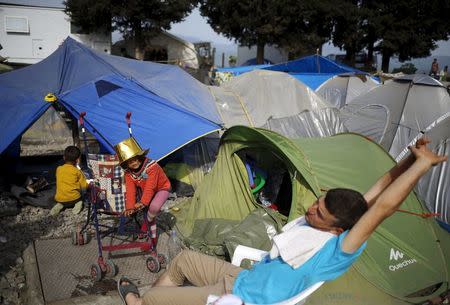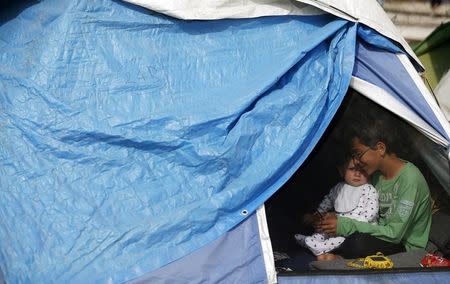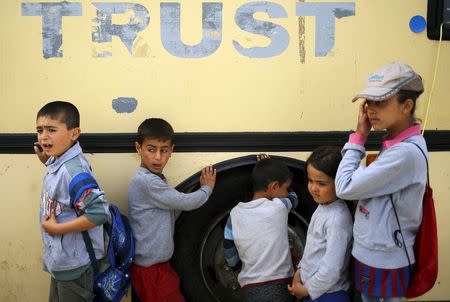Hungary's Orban, Germany's Kohl say EU ability to absorb migrants limited
By Frank Simon OGGERSHEIM, Germany (Reuters) - Hungarian Prime Minister Viktor Orban, a fierce critic of German Chancellor Angela Merkel's open-door refugee policy, and her ex-mentor Helmut Kohl agreed on Tuesday it was questionable whether Europe could continue to absorb migrants indefinitely. Orban and Kohl issued a joint statement after the right-wing Hungarian leader paid a rare private visit to the 86-year-old Kohl, architect of Germany's 1990 reunification and a major driver of European integration in the 1990s. Orban's meeting with Kohl, 86, who makes only rare public appearances and is largely wheelchair bound, stoked speculation that it was meant as a snub to Merkel and that Germany's foremost elder statesman disagrees with her course. Trying to play down talk of any such rift, the Kohl-Orban statement said they and Merkel shared the overall objective of alleviating the humanitarian emergency represented by migrants but signalled differences over how to tackle the challenge. "There is complete agreement on the goal," the two said in the statement issued by Kohl's office after the hour-long Orban visit to the conservative Christian Democrat's longtime home in Oggersheim near the Rhine river in southwestern Germany. "It is about a good future for Europe and peace in the world. The efforts of (Merkel) point in the same direction." But, they added, "how many people can Europe sensibly take in and in the end integrate? And what happens to the remaining millions of people in need around the world who cannot flee?" Critics say Merkel's decision last year to let in Syrian refugees without restriction contributed to the arrival of more than 1 million asylum-seekers in Germany - the great majority of those reaching European Union territory - in the last year. HUNGARY SLAMS DOOR TO REFUGEES By contrast, Orban's government has built a razor wire fence on Hungary's border with Serbia and Croatia to keep out mostly Muslim migrants, citing the need to help safeguard Europe's Christian civilization. In a column published on Sunday in Berlin's Tagespiegel daily, Kohl said he did not think the EU could integrate millions of refugees. "The solution lies in the affected regions. It does not lie in Europe. Europe cannot become a new home for millions of people in need around the world," he wrote. Merkel has acted of late to deter an uncontrolled influx of migrants into the EU and defuse intensifying criticism from her conservative Bavarian coalition ally and the public at large. Last week, she agreed to require migrants granted residence rights to show willingness to integrate by learning German and seeking work or see their benefits cut. Her government has also introduced steps to speed up processing of applications and deportations of those refused permission to stay. Neighbouring Austria as well as Balkan countries have also sealed their borders against undocumented migrants, cutting their overland route from Greece to Germany. The migrant flow has since ebbed and the pressure on Merkel has eased. She appeared relaxed about Orban's visit with Kohl, saying the two had known each other a long time and the talks were "sensible and useful". Orban presented Kohl with a Hungarian-language version of the former chancellor's book "Out of Concern for Europe". Kohl governed from 1982 to 1998, during which the Berlin Wall fell and Communism collapsed in eastern Europe. Merkel was his protege in the 1990s but their relations cooled after she called on the Christian Democrats (CDU) to break with their "old warhorse" over a party funding scandal. Since then, Kohl has voiced doubt about some of Merkel's policies, including her handling of the euro zone debt crisis. (Reporting by Reuters Television, Thorsten Severin and Krisztina Than in Budapest; Writing by Madeline Chambers; Editing by Mark Heinrich)

 Yahoo News
Yahoo News 



